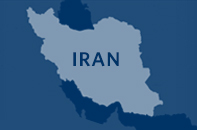Jack Lew Honors Aung San Suu Kyi
On Wednesday evening, White House Chief of Staff Jack Lew offered remarks at the presentation of the Elie Wiesel Award to Aung San Suu Kyi at the United States Holocaust Memorial Museum’s National Tribute Dinner. In the speech, Lew spoke about his own experience as a young man and the importance of the work that Aung San Suu Kyi and the Museum do.
His full remarks as prepared for delivery are below:
Good evening.
It is an honor for me to join such a distinguished group of speakers and guests this evening. I’d also like to add my thanks to all of the board members, contributors, and staff who support the mission of the Holocaust Museum. And I know how much President Obama is looking forward to visiting the museum on Monday.
My father was born in Poland, and his family left their small town at the end of World War I.
Many of his neighbors and relatives were not so lucky. And he made it here to America, a country where he did not need to live in fear. A country where even the son of an Eastern European immigrant could become Chief of Staff to the President of the United States.
As a child, there were constant reminders of how lucky my family had been. I grew up in a neighborhood that was home to many Holocaust survivors, at a time when the Holocaust was something that just wasn’t talked about. When peoples’ numbers showed on their arm, they would pull their sleeve down.
It is amazing how much has changed. Today, thanks in no small part to your work at the Holocaust Museum, the Holocaust is something we do talk about. A child born in America today may never meet a Holocaust survivor, or even a veteran of World War II. But they will always know what happened, and be able to remember and honor those who lost their lives.
Because the Holocaust Museum is not only about commemorating the past. It is about shaping the future. You have always believed that, in the words of Elie Wiesel, “the memory of evil will serve as a shield against evil; that the memory of death will serve as a shield against death.”
With that in mind, it is my great honor to join you for the presentation of the Second Elie Wiesel Award. As you know, the first recipient was Elie Wiesel himself. And I can think of no better second recipient than Aung San Suu Kyi.
I say this not only because Daw Suu has lived an extraordinary and courageous life. I say this because she could have so easily chosen a different path, one of comfort and convenience. She went to university in London. Lived in countries around the world, including the United States and India. She knew there were plenty of opportunities for her outside of Burma.
And she knew the risks involved in her decision to advocate for democracy.
After all, her own father had been assassinated by political rivals, four decades earlier. But she stayed in Burma anyway. For 15 of the first 21 years after she emerged as a leader of the pro-democracy movement, she was under house arrest – and even then, she had a choice. She was offered her freedom, in exchange for exile, and she refused.
Many times, Daw Suu could have decided that she had done enough – that it was someone else’s turn to sacrifice. But she refused to give up. Instead, she continued to inspire the entire world with her faith in non-violent action, and her belief that freedom would ultimately prove greater than tyranny.
For decades, Aung San Suu Kyi’s story has given hope to those who had none, both in her country, and around the world.
And today, even as we gather here, a new chapter in that story is being written. As President Obama put it last November, in Burma we are seeing “flickers of progress.”
President Obama made that statement – and the historic decision to send Secretary of State Hillary Clinton to Burma – after becoming the first U.S. President to speak to Daw Suu. In that conversation, he wanted to hear firsthand from her, before moving forward with his decision. He was able to hear her views about democratic reform and reconciliation.
They were also able to talk a little about lighter topics – she even gave her best to Bo. And they both looked forward to the day when they could see each other in person.
As President Obama and Secretary Clinton reached out to engage Burma and to encourage the Burmese government to begin the challenging journey to a democratic and prosperous future, they were reflecting a broader vision of America’s role – and our responsibility – in the world.
The President described this vision in his Inaugural Address.
He said, “To those who cling to power through corruption and deceit and the silencing of dissent, know that you are on the wrong side of history, but that we will extend a hand if you are willing to un-clench your fist.”
In other words, as Americans, we recognize that the world’s democracies must stand up when democratic principles and human rights are denied. But when governments such as Burma move in the direction of democratic reform, they will be met in a spirit of partnership and respect by the United States. We will match their progress action for action—and offer encouragement and support as they continue down the long and difficult road that lies before them.
Our commitment to that vision is unwavering. We know that the path toward democracy is never easy, and that significant challenges lie ahead, for Aung San Suu Kyi, for Burma, and for our entire world. But tonight, we celebrate a woman whose dedication to shining a light on injustice and abuse has led to the beginnings of a transformation in her country, and we look toward the future with renewed confidence, and renewed hope.
Thank you.






